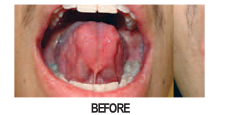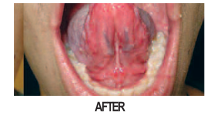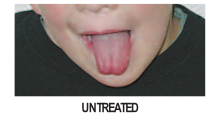What is a Myofunctional Disorder?
Mouth Breathing
When I ask clients if they breathe through their mouth, the common response is no.
Often, I have already noticed that they are mouth breathers before I even ask the question.
This has taught me two things:
(1) We are often not aware of our own habits.
(2) Our idea of what mouth breathing looks like is not always how it presents itself.
We might picture a mouth breather as someone whose mouth is gaping open, sometimes that is the case but more often mouth breathers have their lips just slightly parted, it might not even be something we pick up on right away.
But mouth breathing is dysfunctional breathing, it is NOT healthy and it is Not normal.
Often people mouth breathe because of nasal congestion, allergies or asthma, deviated nasal septum, previous thumbsucking, enlarged tonsils or adenoid, or a tongue tie.
Symptoms of mouth breathing are:
- Dry mouth
- Misaligned teeth
- Bad breath
- Gum disease
- Facial malformation
- Cavities
- Nasal obstruction
- Ear infections
- Poor concentration
- Throat infections
- Sleep apnea
- Snoring
- Neck and shoulder tension
- Temporomandibular joint dysfunction
- Digestive problems
- ADHD
- ADD
- Snoring
- Speech problems
Why is nasal breathing so important?
- Air is filtered in our nose, it helps protect us from viruses and bacteria.
- Nitric oxide is produced which helps us absorb more oxygen.
- Ensures better blood flow and lung volume
- Reduces hypertension and stress
- Increased energy and vitality
Helpful Articles
Mouth Breathing Adverse Affects
Attention All Mouth Breathers – 5 Important Reasons Why You Must Breath Through Your Nose
Boost Nitric Oxide Levels to Improve Health
How myofunctional therapy can help: Through myofunctional therapy you will learn not only the reason why you are breathing incorrectly but also how to correct it by muscular retraining.
What is TMJ / Jaw Pain?
The temporomandibular joint connects your jaw bone to your skull. A disorder can cause pain in the jaw joint and in the muscles that control jaw movement. Improper tongue position, a narrow arch, and forward head posture contribute to TMJ.
Symptoms: pain in the jaw joints, headaches, popping, clicking, clenching or grinding.
How Myofunctional therapy can help: Therapy helps to correct these contributing factors and relieve painful symptoms.

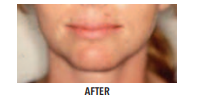
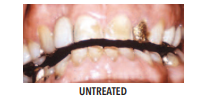
What is Sleep Apnea?
Sleep apnea disrupts the sleep cycle and can dramatically impact energy, mental performance and long term health. If left untreated it can be fatal.
Symptoms: snoring, gasping for air, awakening with a dry mouth, morning headaches, irritability, difficulty paying attention while awake and excessive daytime sleepiness.
How Myofunctional therapy can help: Therapy helps strengthen the airway muscles and correct improper breathing. It has been shown to reduce sleep apnea in adults and children. Myofunctional therapy could serve as an adjunct to other obstructive sleep apnea treatments.
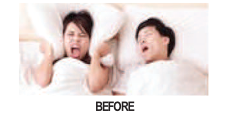

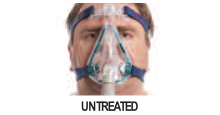
What is Tongue Tie (ankyloglossia)?
Symptoms in:
INFANTS
• Sucking or feeding problems, no latch
• Can’t coordinate sucking,swallowing and breathing
• Infant reflux
CHILDREN
• Difficulty with speech articulation or speech delay
• Chewing and/or swallowing issues
• Mouth breathing and open mouth posture
ADULTS
• Sleep apnea and airway collapse, TMJ pain/issues
• Clenching and grinding, head/neck/shoulder tension
and chronic pain, and forward head posture
How myofunctional therapy can help: It may be recommended that surgery be done to correct the problem. Often called a frenulectomy, the connective tissue under the tongue is altered or removed. It is important that myofunctional therapy be done before and after surgery for proper healing and function.
